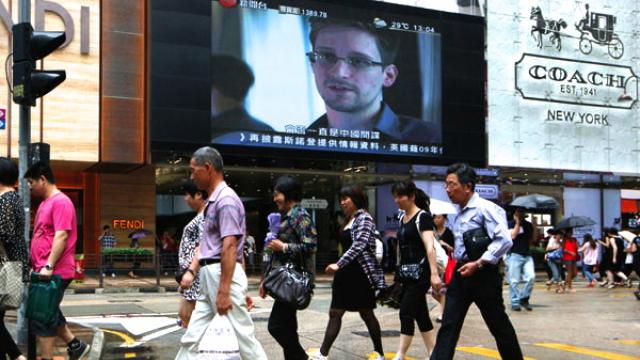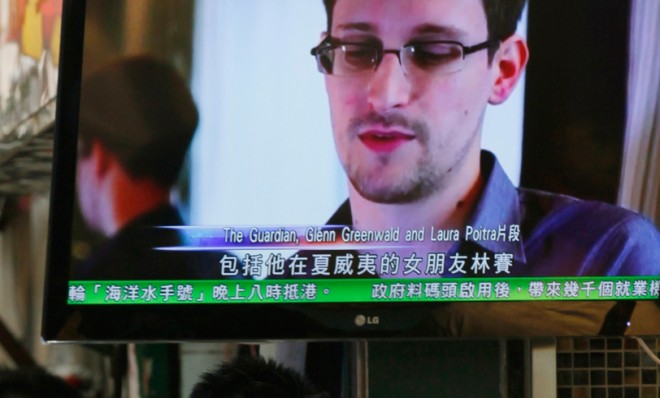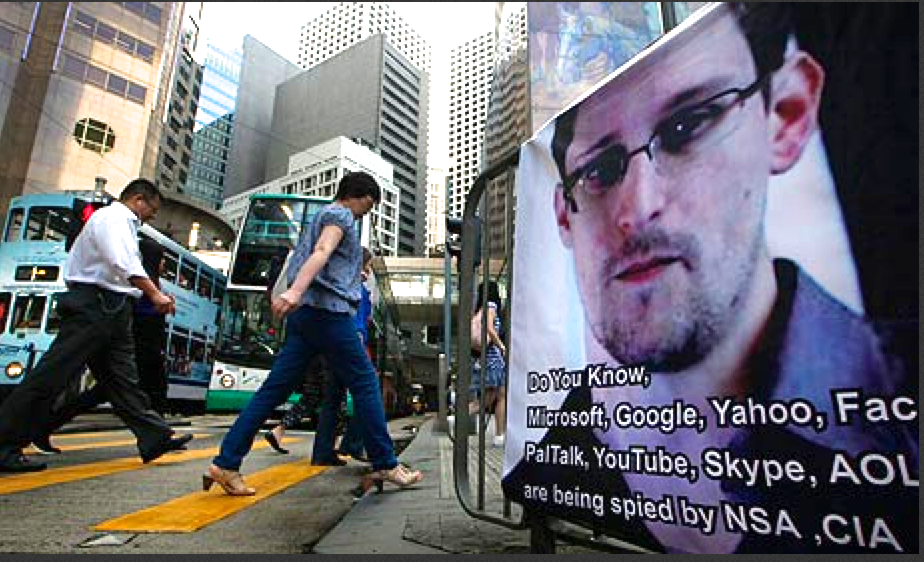
The NSA whistleblower Edward Snowden has warned that the truth about the extent of surveillance carried out by U.S. authorities would emerge, even if he was eventually silenced.
In a live Q&A with Guardian readers from a secret location in Hong Kong, Snowden hinted at more disclosures to come and that their publication could not be prevented by his arrest or – more chillingly – his death.
Answering a question about whether he had more secret material, the 29-year-old former National Security Agency contractor wrote: "All I can say right now is the U.S. government is not going to be able to cover this up by jailing or murdering me. Truth is coming, and it cannot be stopped."
Snowden, who is hiding in a safe house in Hong Kong, where he remains free despite admitting to the biggest leak of U.S. secrets in a generation, spent nearly two hours taking questions on the Guardian website. His discussed issues ranging from why he picked a Chinese-controlled territory as his hideout to his specific concerns about the Obama administration. He also clarified questions about his salary at Booz Allen Hamilton and the the extent of access he had as a contractor for the NSA.
With opinion in the U.S. divided between those who see him as a traitor and those who view him as a hero, Snowden said he fled the country because he did not believe he had a chance of a fair trial.
"The U.S. government, just as they did with other whistleblowers, immediately and predictably destroyed any possibility of a fair trial at home, openly declaring me guilty of treason and that the disclosure of secret, criminal, and even unconstitutional acts is an unforgivable crime. That's not justice, and it would be foolish to volunteer yourself to it if you can do more good outside of prison than in it," he said.
Snowden, whose leaked documents opened a debate about the balance between intrusive government surveillance versus security, does not regard himself as having committed a crime but instead as the person exposing alleged criminality on the part of the Obama administration.
In the Q&A session, Snowden said he had initially been encouraged by the public response. "Unfortunately, the mainstream media now seems far more interested in what I said when I was 17 or what my girlfriend looks like rather than, say, the largest program of suspicionless surveillance in human history," he said.
Snowden emphatically denied speculation that he had cut a deal with the Chinese government, giving them classified documents in exchange for providing him with an eventual safe haven. In the most colourful quote of the interview, he said: "Ask yourself: if I were a Chinese spy, why wouldn't I have flown directly into Beijing? I could be living in a palace petting a phoenix by now."
He claimed that he had not revealed documents about U.S. operations about legitimate military targets. Snowden said he had focused instead on operations that targeted civilian infrastructure: universities, hospitals and private businesses. "These nakedly, aggressively criminal acts are wrong no matter the target … Congress hasn't declared war on the countries – the majority of them are our allies – but without asking for public permission, NSA is running network operations against them that affect millions of innocent people."
Snowden, who spent a decade working with various defence contractors on secondment to the CIA and the NSA as a communications specialist, reiterated that he had delayed going public because of his hope that Barack Obama's election would mark a sea change but he had ended up disillusioned.
"Unfortunately, shortly after assuming power, he closed the door on investigating systemic violations of law, deepened and expanded several abusive programs, and refused to spend the political capital to end the kind of human rights violations like we see in Guantánamo, where men still sit without charge," he said.
During interviews in Hong Kong, Snowden expressed a desire once he had gone underground to speak directly to the public through a Q&A.
His choice of Hong Kong has left many puzzled, especially as he could have opted to fly direct to Iceland, which he said was his preferred asylum option and whose legislators have emerged as strong supporters of online freedom and whistleblowing.
Explaining his reasoning, Snowden said it had been risky for him to leave the US, as NSA employees have to declare foreign travel 30 days in advance. "Iceland could be pushed harder, quicker, before the public could have a chance to make their feelings known, and I would not put that past the current U.S. administration," he said.
Snowden said he had chosen Hong Kong as a base because it provided a "cultural and legal framework to allow me to work without being immediately detained".
Addressing the backlash against him in the US, Snowden said much of it was predictable. He said: "It's important to bear in mind I'm being called a traitor by men like former vice president Dick Cheney. This is a man who gave us the warrantless wiretapping scheme as a kind of atrocity warm-up on the way to deceitfully engineering a conflict that has killed over 4,400 and maimed nearly 32,000 Americans, as well as leaving over 100,000 Iraqis dead. Being called a traitor by Dick Cheney is the highest honor you can give an American."
Snowden also clarified a point about his salary, which he had put in an earlier interview at $200,000. His last employer, Booz Allen Hamilton, said he made $122,000 a year. Snowden, who held a number of posts in recent years, said $200,000 was a "salary high" and that he had taken a pay cut to work at Booz Allen.
3 WAYS TO SHOW YOUR SUPPORT
- Log in to post comments















